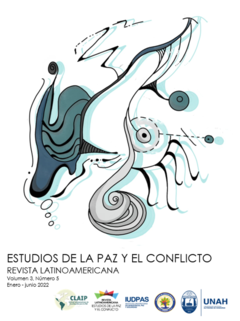La necesidad de la aplicación del Principio de Vetting en procesos de paz: caso colombiano en la implementación normativa de la Jurisdicción Especial para la Paz
DOI:
https://doi.org/10.5377/rlpc.v3i5.12799Palabras clave:
Vetting, construcción de paz, crímenes internacionales, reincorporación políticaResumen
En el artículo se demuestra que la no aplicación del Principio de Vetting en el proceso e implementación del Acuerdo de Paz en Colombia ha obstaculizado la construcción de paz, obligación internacional del Estado, porque los actores de veto interfirieron en la implementación normativa de la JEP. Debido a esto, han impedido un proceso integral de rendición de cuentas sobre crímenes internacionales, así como el proceso de reincorporación política de excombatientes. Para esto, en primer lugar, se identifican los cambios en el diseño de la JEP, producto de las interferencias de los actores de veto. Luego se analizan estos cambios a la luz del principio de Vetting y, finalmente, se evidencian las consecuencias de estos como obstáculos al derecho a la paz.
Descargas
682
HTLM 241
XLM 23
EPUB 133
Publicado
Cómo citar
Número
Sección
Licencia
Derechos de autor 2021 Revista Latinoamericana Estudios de la Paz y el Conflicto

Esta obra está bajo una licencia internacional Creative Commons Atribución 4.0.
Los contenidos de la revista se publican bajo licencia Creative Commons Reconocimiento 4.0 (CC BY 4.0). Esta licencia permite a terceros compartir (copiar y redistribuir el material en cualquier medio o formato) y adaptar (remezclar, transformar y crear a partir del material para cualquier finalidad, incluso comercial), siempre que se reconozca la autoría y la primera publicación en esta revista (Revista Latinoamericana Estudios de la Paz y el Conflicto, Universidad Nacional Autónoma de Honduras - Consejo Latinoamericano de Investigación para la Paz, DOI de la obra), se proporcione un enlace a la licencia y se indique si se han realizado cambios en ésta. Los términos de la licencia están disponibles online en http://creativecommons.org.




